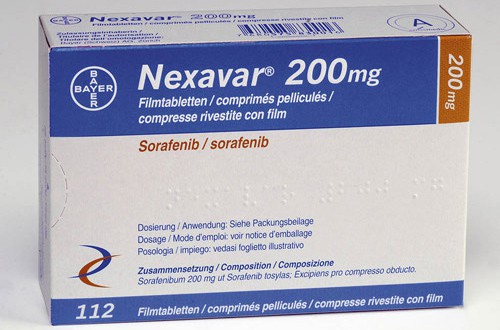
Bayer’s first attempt at overturning a compulsory license in India for its cancer drug Nexavar was knocked back yesterday after its appeal was turned down.
The Intellectual Property Appellate Board (IPAB) upheld the licence awarded to Natco Pharma – which sells a cut-price version of liver and kidney cancer treatment Nexavar (sorafenib tosylate) in India – although Bayer did win a slight increase in the royalty it receives on generic sales from 6 per cent to 7 per cent.
Natco received the the compulsory licence in March 2012 on the grounds that Bayer had not made the drug available at a reasonably affordable price in India. Bayer had been selling Nexavar for around $5,000 a month, but has since reduced the price given that Natco’s generic sells for just $160 a month.
The case has deep significance for the multinational pharma industry, which has seen a crop of its newest products lose intellectual property protection in India in recent months. Bayer’s appeal was the first to be mounted against compulsory licensing – with Natco remaining the only drugmaker to have explored that route – and the verdict could encourage sponsors to seek licences for other drugs.
There have already been suggestions that Roche’s breast cancer treatment Herceptin (trastuzumab) and Bristol-Myers Squibb’s leukaemia medicine Sprycel (dasatinib) and chemotherapy Ixempra (ixabepilone) could follow Nexavar down this route.
Bayer could continue to fight for Nexavar’s IP at High Courts in Mumbai or Chennai or at the country’s the Supreme Court.
Médecins Sans Frontières, which has long campaigned for greater access to in-patent drugs, hailed the IPAB’s decision as “landmark victory for generic drugs”, adding that compulsory licences are “a legally recognised means to overcome barriers in accessing affordable medicines under international trade rules”.
In several other recent cases pharmaceutical patents have been invalidated under Indian IP rules that do not allow new formulations of existing compounds to be patentable.
The main case in the latter category – which involves Novartis’ leukaemia drug Glivec (imatinib) – has been rumbling on for years and has now reached the level of India’s Supreme Court.
Other products impacted by this form of IP attack include Roche’s hepatitis drug Pegasys (peginterferon alfa-2a), Merck & Co’s asthma drug Singulair (montelukast) and Pfizer’s cancer drug Sutent (sunitinib).




